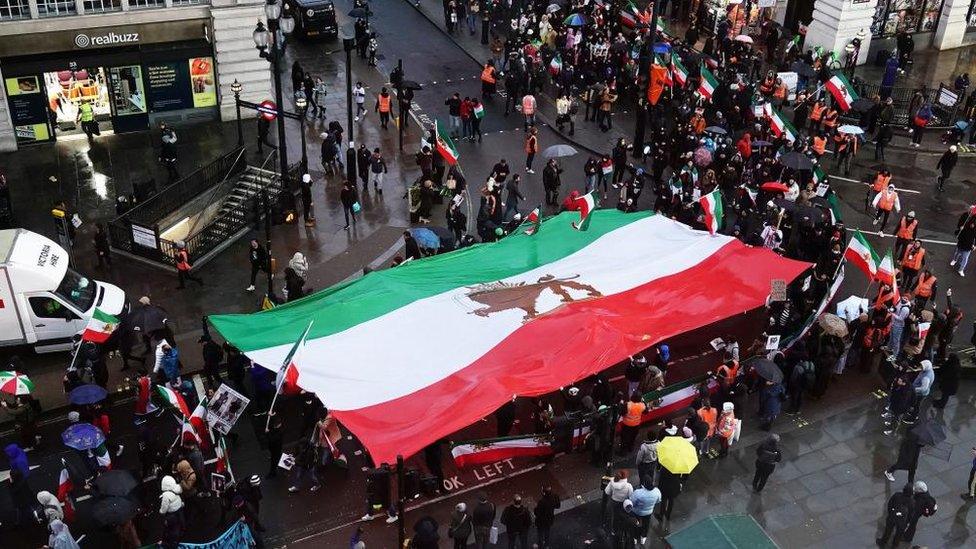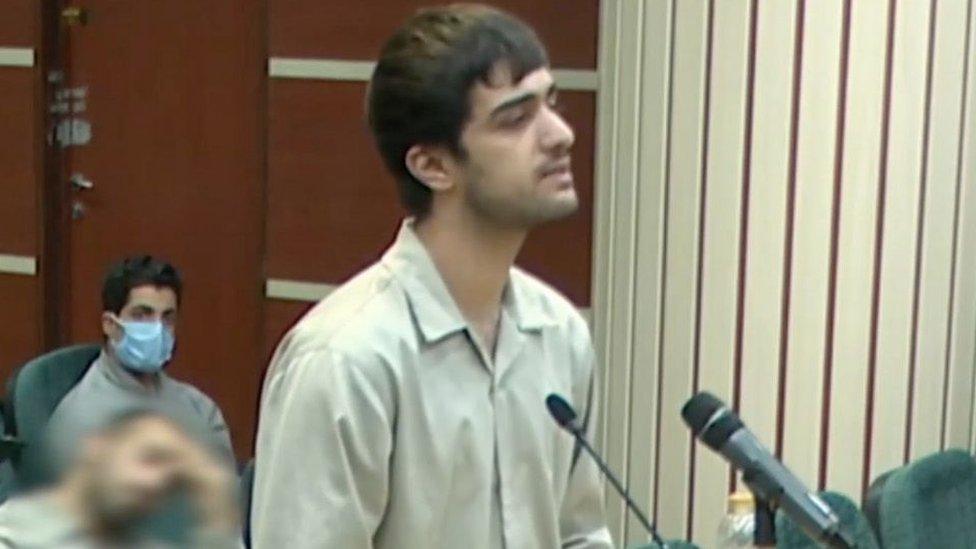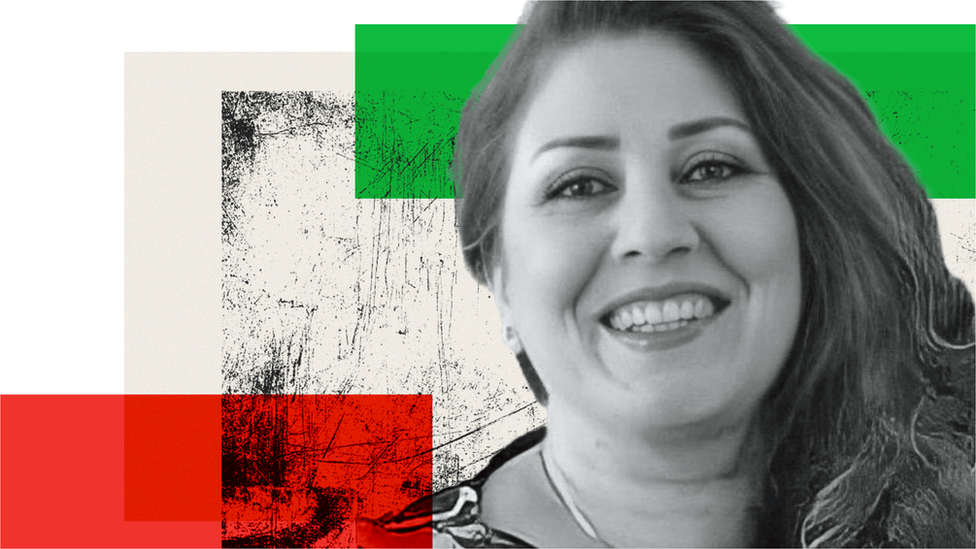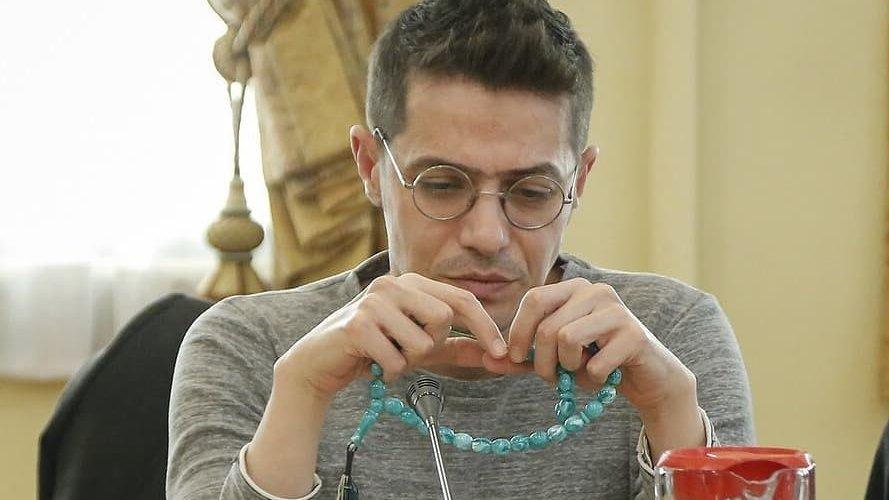Iran executions: UK summons top diplomat in protest at killings
- Published

Protesters in London marching against Iran's leaders following the death of Mahsa Amini
The foreign secretary has summoned Iran's most senior diplomat in the UK after the regime executed two more protesters at the weekend.
James Cleverly condemned the deaths and urged an end to "brutal repression".
The diplomat - Mehdi Hosseini Matin - was also summoned in November over alleged threats to journalists in the UK.
The executions of Mohammad Mahdi Karami and Seyyed Mohammad Hosseini have been condemned around the world.
The two men said they had been tortured into making false confessions over killing a member of the security forces during protests against the government last year.
The UN said the executions followed "unfair trials based on forced confessions".
Other countries including Germany and France have also summoned their Iranian ambassadors.
Mr Cleverly said on Monday: "The Iranian regime must end its campaign of brutal repression and start listening to the concerns of its people."
BBC News understands that Mr Cleverly has not directly spoken to Iran's charge d'affaires, Mehdi Hosseini Matin, despite instructing the Foreign Office to summon him four times.
The Foreign Office first summoned Mr Hosseini Matin on 3 October in response to the regime's crackdown on nationwide protests prompted by the death in custody of 22-year-old Mahsa Amini.
A few weeks later, on 11 November, he was summoned again after reports of threats made against journalists living in the UK.
The Metropolitan Police warned at least two journalists working at Iran International, a Persian-language news channel, of a threat to their lives after an Iranian reconnaissance unit was reportedly seen outside their homes and offices.

Mohammad Mahdi Karami attending a court hearing in Karaj, Iran, a month before he was executed
The Foreign Office then sent another summons on 8 December when another prisoner was executed.
BBC diplomatic correspondent James Landale says summonses such as this are unlikely to change the way the Iranian authorities behave towards anti-government protesters.
But, he adds, it is a way of sending a signal to Tehran that its actions are not going unnoticed and that they come at a cost.
Widespread protests began in Iran last year following the death of 22-year-old Mahsa Amini.
She was arrested by morality police in Tehran for allegedly breaking the country's strict dress code - she collapsed at a detention centre and died three days later in hospital.
Since her death, the Foreign Office says it has imposed more than 40 human rights sanctions on political, judicial and security officials in Iran over their role in serious human rights violations.
- Published6 December 2022

- Published6 January 2023
